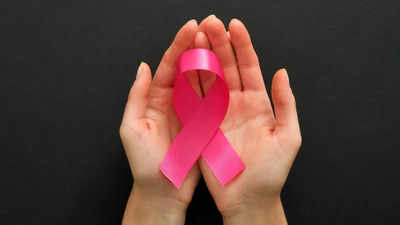Recent analyses by Cancer Research UK and the Cancer Mukt Bharat Foundation have revealed alarming trends in cancer occurrence among young adults. From the UK to India, the data suggests a notable increase in cancer cases among individuals under the age of 50, sparking concerns among researchers and healthcare professionals.
Cancer Incidence Trends
In the UK, Cancer Research UK’s analysis showed a staggering 24% jump in the incidence rates among those under 50 between the early 1990s and 2019. This increase, unprecedented in any other age group, highlights a concerning trend that demands attention. Similarly, the Cancer Mukt Bharat Foundation’s study in India found that 20% of patients in cities like Delhi are below the age of 40, with a significant portion being male.
Contributing Factors
Several factors may contribute to the rise in early-onset of cancer cases. Professor Charles Swanton, Cancer Research UK’s chief clinician, pointed to increased exposure to known and unknown risk factors, changes in lifestyles and diets, and rising obesity rates as potential drivers of this trend. The American Cancer Society also noted a demographic shift in cancer patients from older to middle-aged individuals in the United States.
The rising incidence of this disease among young Indians is increasingly linked to a combination of poor lifestyle choices and environmental factors, according to recent statements from healthcare professionals and studies conducted by organizations such as Cancer Mukt Bharat Foundation and Fortis Memorial Research Institute.
One of the significant contributors identified by experts is the widespread consumption of ultra-processed foods, coupled with sedentary lifestyles. Dr. Rahul Bhargava from Fortis Memorial Research Institute highlighted, “Ultra-processed foods and sedentary lifestyles are emerging as significant contributors to the rising cancer rates among young Indians. The high intake of these foods, laden with unhealthy additives, combined with physical inactivity, is creating a health crisis.”
Additionally, environmental pollution, particularly prevalent in India’s urban centers, plays a pivotal role. Air and water pollution expose individuals to carcinogenic substances, significantly increasing their risk. Dr. Ashish Gupta, principal investigator at Unique Hospital Cancer Center and head of the Cancer Mukt Bharat Campaign, emphasized, “In our country, escalating rates of obesity, change in dietary habits, specifically the increase in consumption of ultra-processed food, and sedentary lifestyles are associated with higher case rates.”
Furthermore, gender disparities in cancer prevalence among younger populations are notable, with men constituting 60% of these cases. This difference is attributed to higher rates of tobacco use, occupational exposures, and lifestyle choices prevalent among men in India.
Preventive Measures

While the surge in early-onset cancer cases is concerning, there are steps individuals can take to reduce their risk. Professor Swanton emphasized the importance of lifestyle factors such as avoiding smoking, maintaining a healthy weight, practicing sun safety, and moderating alcohol consumption. Education and awareness campaigns play a crucial role in empowering individuals to make informed choices about their health.
To address these alarming trends, healthcare professionals stress the urgent need for comprehensive lifestyle interventions. Dr. Gupta underscored the importance of collaborative efforts, stating, “A combined effort from the government, healthcare professionals, and the community is crucial to tackle the rising rates among young adults.” He emphasized the necessity for policies promoting clean air and water, regular physical activity, and access to nutritious food. Additionally, investments in healthcare infrastructure are crucial to ensure timely diagnosis and effective treatment.
Need for Research and Support
Despite efforts to raise awareness and promote preventive measures, the underlying causes of rising cancer rates among young adults remain unclear. Professor Swanton stressed the urgent need for more research to understand why these cases are increasing in younger populations globally. Additionally, initiatives like the Cancer Mukt Bharat Campaign’s national cancer helpline provide essential support and resources for individuals seeking information and guidance on the prevention and treatment.
The growing prevalence of critical disease among young adults is a significant public health concern that requires collaborative efforts from researchers, policymakers, healthcare professionals, and the community. By addressing risk factors, promoting healthy lifestyles, and investing in research and support services, we can work towards reducing the burden of cancer and improving outcomes for individuals affected by this devastating disease.
The rising incidence of this disease among young Indians youth and in the world in genera underscores the critical importance of addressing modifiable risk factors such as diet, physical activity, and environmental pollutants. Initiatives that promote healthier lifestyles and improve environmental quality are essential in curbing this concerning health trend.
For more latest news visit Arclantic.
Lorem Ipsum is simply dummy text of the printing and typesetting industry. Lorem Ipsum has been the industry's standard dummy text ever since the 1500s, when an unknown printer took a galley of type and scrambled it to make a type specimen book. It has survived not only five centuries, but also the leap into electronic typesetting, remaining essentially unchanged Lorem Ipsum is simply dummy text of the printing and typesetting industry. Lorem Ipsum has been the industry's standard dummy text ever since the 1500s, when an unknown printer took a galley of type and scrambled it to make a type specimen book. It has survived not only five centuries, but also the leap into electronic typesetting, remaining essentially unchanged It has survived not only five centuries, but also the leap into electronic typesetting, remaining

Comments